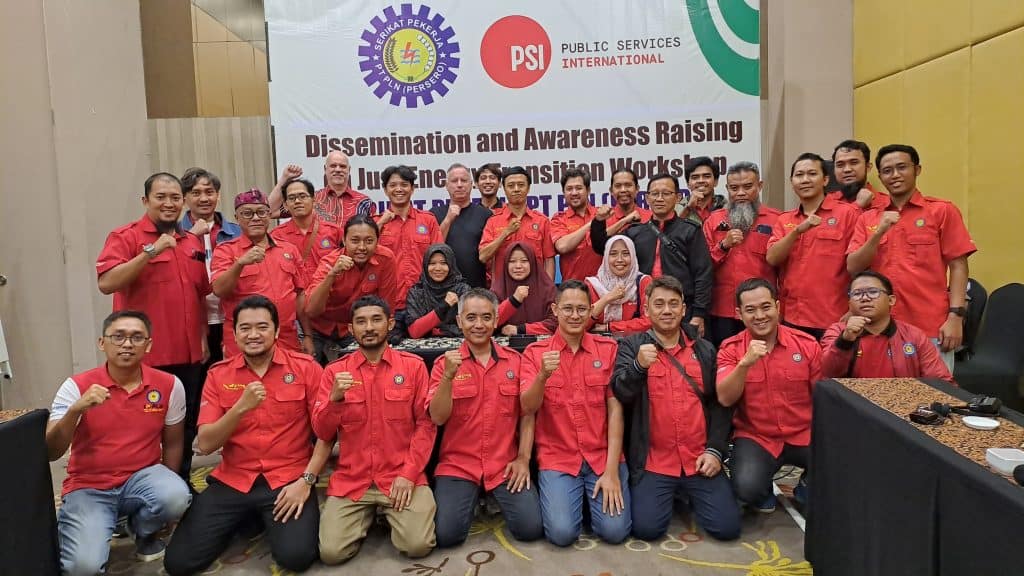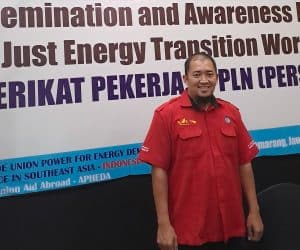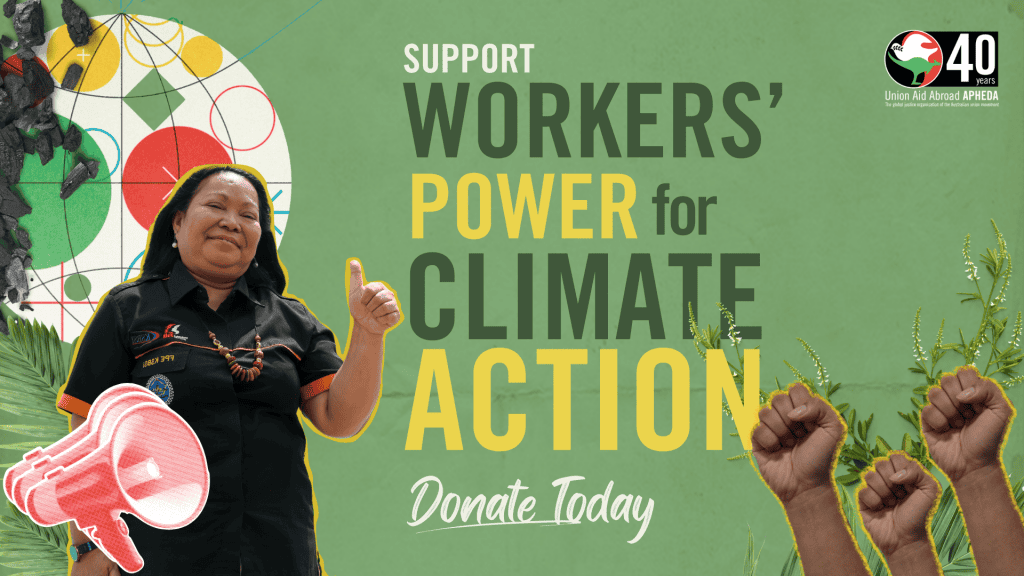
Indonesian energy union members (SP PLN) participating in just transition workshops.
Indonesia is the largest thermal coal exporter in the world, but that will change in the coming years ahead. A significant shift away from fossil fuels in Indonesia is coming, and it will massively affect the workforce. In this article, we explore how workers are gearing up to be the main actors in climate action in Indonesia.
Currently, 75% of Indonesia’s coal is exported. Demand from major countries and the impact of the ban on Russian coal exports have fueled enormous growth in Indonesia’s coal market and production. The remaining coal reserves cater to the domestic market, making coal the primary source of the country’s current electricity mix. Consequently, Indonesia’s coal power carbon emissions have doubled in the past decade.
But this is destined to change.
A huge shift
At COP 26, Indonesia committed to net zero emissions by 2060. This commitment means a dramatic shift in the country’s electricity mix, with coal being phased out entirely and a significant increase in solar PV generation.
To support Indonesia’s energy transition, the Just Energy Transition Partnership (JETP) has secured significant investment, representing the largest energy transition financing package globally to date. However, much more funding is needed to fully realize this transition.
The experience in South Africa has shown the looming threat of breaking up state-owned energy companies to sell them off to private interests.
This dramatic shift from fossil fuels to renewables and the massive growth in overall electricity output will significantly impact the Indonesian energy sector’s workforce. However, Indonesia’s unions and workers have not been consulted and have been left out of national planning. At the workplace level, workers are in the dark.
“We need to educate our members about this transition. It’s the industry we work in, but we haven’t been consulted. The consequences of this change could mean privatisation and the breaking up of the state-owned company, which will weaken the union and threaten jobs.” – Mr. Nurul Hudha, Regional Secretary of the energy union (DPD SP PLN PUSMANPRO).
“Unions must be involved”
Union Aid Abroad – APHEDA is supporting a project with SP PLN, an energy union representing electricity transmission and distribution workers in the state-owned power company, PT Perusahaan Listrik Negara (PLN), which holds a monopoly on electric power distribution in Indonesia and generates the majority of the country’s electrical power.
In collaboration with Public Services International, APHEDA, assisted by Dr. Colin Long, Just Transitions Organiser at Victorian Trades Hall Council, has conducted a series of workshops to increase knowledge of JETP and plan for future campaigning and bargaining for union officials working at PLN.
There is limited knowledge of JETP among union workers in the state-run energy company, even though JETP represents a fundamental change to their industry.

Nurul Hudha, Regional Secretary of the energy union (DPD SP PLN PUSMANPRO)
“This is the first time I’ve heard of JETP. My eyes are wide open,” said Mr. Hudha, who attended a workshop in Semarang, Central Java.
“The union must be involved as a voice of the workers,” said Mr. Hudha. “I will be talking to my members about this. Each member must understand what we are fighting for and share the same goal as us, the officials.”
Mr. Andy Wijaya, Secretary General of PP-IP, another PLN energy union participating in the APHEDA project, emphasised, “Electric power is included in the branches of production that are important for the country and must be controlled by the state. In carrying out the energy transition, the benchmark must remain under state control, used for the prosperity of the people. In addition, we want to ensure that the electricity produced in this transition process remains affordable and cheap for the community and safe for the environment.”
With the generous support of Australian unions and members, the Finnish trade union solidarity support organisation (SASK), and the German government’s international development arm (GIZ), Union Aid Abroad – APHEDA supports trade unions in Indonesia, Nepal, and the Philippines to build power for energy democracy and climate justice.
If you would like to contribute to our work building solidarity for energy democracy and climate justice, please support our end-of-financial-year appeal for climate justice before June 30.

